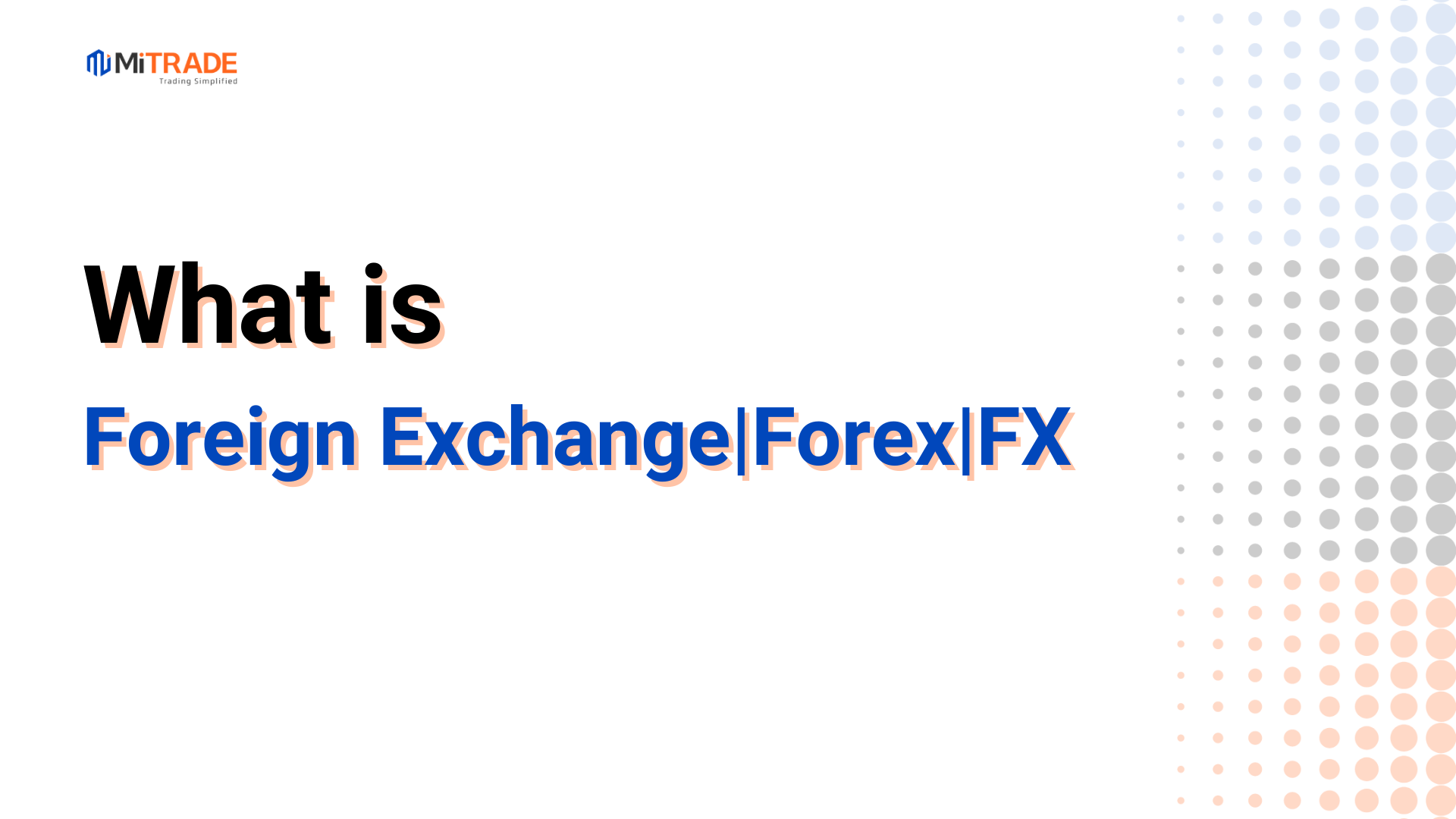What is Foreign Exchange (Forex | FX)

Foreign exchange, also commonly referred to as Forex or FX, is the largest financial market in the world, where companies or individuals exchange one currency for another. If you have ever traveled abroad, it is likely that you have participated in a forex transaction.
Example;
Bill is traveling from Taiwan to the United States. Bill may find a currency exchange at the airport and exchange his Taiwanese currency(NTD) into US dollars (USD).
Bill found out that the exchange rate of NTD to USD is 0.034, and then he exchanged 10,000 NTD for 340 USD for travel expenses for his trip.
By doing so, Bill sold the 10,000 NTD in his possession and bought 340 U.S. dollars. Through this process, Bill participated in the foreign exchange market!
What is the Forex Market?
The FX market is a global, decentralized market where the world’s currencies change hands. Exchange rates change by the second so the market is constantly in flux.
Only a tiny percentage of currency transactions happen in the “real economy” involving international trade and tourism like the airport example above.
Instead, most of the currency transactions that occur in the global foreign exchange market are bought (and sold) for speculative reasons. Currency traders (also known as currency speculators) buy currencies hoping that they will be able to sell them at a higher price in the future.
Compared to the $200 billion per day volume of the New York Stock Exchange (NYSE), the forex market looks absolutely massive with its daily trading volume of $6.6 TRILLION (Bank for International Settlements (BIS) Triennial Report of 2019).
However that huge $6.6 trillion number covers the entire global foreign exchange market. In actual reality the “spot” market, which is the part of the currency market that’s relevant to most forex traders is smaller at $2 trillion per day. And then, if you just want to count the daily trading volume from retail traders (that’s us), it’s even smaller. It is very difficult to determine the exact size of the retail segment of the FX market, but it’s estimated to be around 3-5% of overall daily FX trading volumes, or around $200-300 billion, arguably less.
Aside from its size, the market also rarely closes! It’s open virtually round the clock.
The forex market is open 24 hours a day and 5 days a week, only closing during the weekend.
So unlike the stock or bond markets, the forex market does NOT close at the end of each business day.
Instead, trading just shifts to different financial centers around the world.
The day starts when traders wake up in Auckland/Wellington, then moves to Sydney, Singapore, Hong Kong, Tokyo, Frankfurt, London, and finally, New York, before trading starts all over again in New Zealand!
* The content presented above, whether from a third party or not, is considered as general advice only. This article should not be construed as containing investment advice, investment recommendations, an offer of or solicitation for any transactions in financial instruments.
